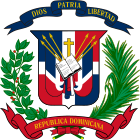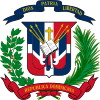
Chile is divided into 16 regions, which are the country's first-level administrative division. Each region is headed by an intendant (intendente), appointed by the President of Chile, and a directly elected regional board.

Dominicans are the citizens of Dominican Republic and their descendants in the diaspora. Dominican is historically the name for the inhabitants of the Captaincy General of Santo Domingo, the site of the first Spanish settlement in the Western Hemisphere. The origins of the Dominican Republic, its people and culture consist predominantly in a European basis, with Native Taíno and African influences.

The Dominican Republic is divided into thirty–one provincias, while the national capital, Santo Domingo, is contained within its own Distrito Nacional.
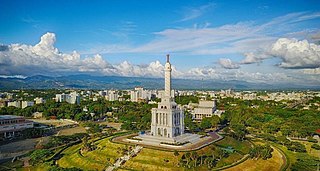
Santiago de los Caballeros, often shortened to Santiago, is the second-largest city in the Dominican Republic and the fourth-largest city in the Caribbean by population. It is the capital of Santiago Province and the largest major metropolis in the Cibao region of the country, it is also the largest non-coastal metropolis in the Caribbean islands. The city has a total population of 1,173,015 inhabitants. Santiago is located approximately 155 km (96 mi) northwest of the capital Santo Domingo with an average altitude of 178 meters (584 ft).

San Francisco de Macorís is a city in the Dominican Republic located in the northeast portion of the island, in the Cibao region. It is the capital of the Duarte Province, and the sixth most populated city in the country. The name San Francisco de Macorís comes from a combination of the name of Saint Francis, patron saint of the Franciscan Order and the territory's old name, which is Macorix.
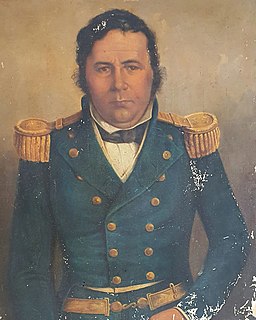
Pedro Santana y Familias, 1st Marquis of Las Carreras was a Dominican military commander and royalist politician who served as the president of the junta that had established the First Dominican Republic, a precursor to the position of the President of the Dominican Republic, and as the first President of the republic in the modern line of succession. A traditional royalist who was fond of the Monarchy of Spain and the Spanish Empire, he ruled as a governor-general, but effectively as an authoritarian dictator. During his life he enjoyed the title of "Libertador de la Patria."
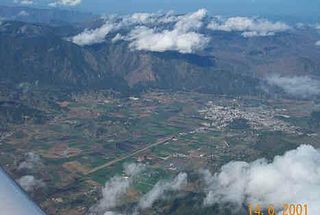
The Cibao, usually referred as "El Cibao", is a region of the Dominican Republic located at the northern part of the country. As of 2009 the Cibao has a population of 5,622,378 making it the most populous region in the country.
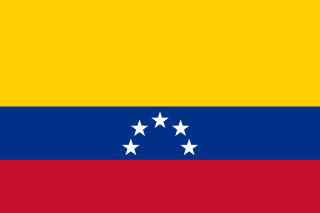
The Independent Republic of Spanish Haiti, also called the Independent State of Spanish Haiti was the independent state that resulted from the defeat of Spanish colonialists from Santo Domingo on November 9, 1821, led by General José Núñez de Cáceres. The republic lasted only from December 1, 1821, to February 9, 1822, when it was annexed by the Republic of Haiti.

Cibao International Airport, also known as Santiago Airport, is located in Santiago de los Caballeros, Dominican Republic's second-largest city. It is the country's third-busiest airport by passenger traffic and aircraft movements, after Punta Cana International Airport and Las Américas International Airport. Since its inauguration, Cibao International has been projected to become one of busiest airports in terms of passenger traffic in the country. Presently it has become the third-busiest airport in the Dominican Republic, only being surpassed by the airports of Punta Cana and Santo Domingo. The airport served more than 970,000 passengers in 2006.

The foreign relations of the Sahrawi Arab Democratic Republic (SADR) are conducted by the Polisario Front, which maintains a network of representation offices and embassies in foreign countries.
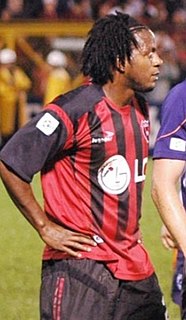
Víctor Amaury Núñez Rodríguez is a retired professional footballer who played as a forward for multiple clubs, including C.S. Herediano, L.D. Alajuelense, and Deportivo Saprissa. He currently serves as assistant coach at C.S. Herediano.

The Águilas Cibaeñas is a professional baseball team in the Dominican Republic's winter baseball league. Founded on January 28, 1933 and based in Santiago, the team has won 6 Caribbean Series and 22 national titles.

Santo Domingo Este is a municipality and the provincial capital of the Santo Domingo province in the Dominican Republic. It has one municipal district, San Luis.

The Colombian Professional Baseball League, is a professional baseball league based in Colombia. It is a six-team winter league that plays during the Major League Baseball offseason. The league's champion takes part in the Caribbean Series.

Yuderqui Maridalia Contreras, also known as Yudelkis Contreras, is a Dominican Republican weightlifter. She went to the 2008 Summer Olympics where she was 5th. After the Games, she was accused of failing a doping control, but the case ended with her name cleared. She was one of the two athletes that represented her home country in weightlifting at the 2012 Summer Olympics. She failed her three attempts in the snatch stage ending with no mark.
Jánico is a municipality (municipio) of the Santiago province in the Dominican Republic. Within the municipality there are two municipal districts : El Caimito and Juncalito.
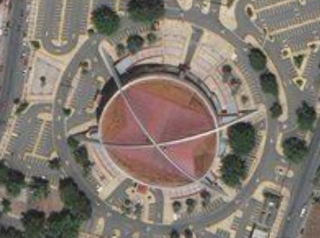
The GranArena del Cibao Dr. Oscar Gobaira, formerly known as the Palacio de los Deportes, is a multi-purpose arena in Santiago de los Caballeros, Dominican Republic, built in 1978. The arena has a capacity of 8,768 seats, consisting of 7,000 regular seats, 668 comfortable armchairs and 1,100 luxury seats that are fully reclinable. The arena has a modern acoustic system, which has 16 speakers and 10 monitors. The arena was remodeled for the Dominican Republic National Basketball Team in accordance with the requirements of FIBA. The cost of the renovations amounted to about RD$528,000,000. The arena Host, Metros de Santiago, national basketball team.
White Dominicans are Dominicans of predominant European descent. They were 16.1% of the Dominican Republic's population, according to the last population census (1960) in which race was queried. The majority of white Dominicans are descendants from the first European settlers to arrive in Hispaniola and have ancestry of the Spanish and French who settled in the island during colonial times, as well as the Portuguese who settled in the 17th and 18th centuries. Many others also descend from Italians, Dutchmen, Germans, Hungarians, Scandinavians, Americans and other nationalities who have migrated between the 19th and 20th centuries. Similar to the rest of the Hispanic Caribbean, the majority of Spaniards who settled the Dominican Republic came from southern Spain, Andalusia and the Canary Islands, the latter of whom are of partial North African Guanche descent.
The 2015 Liga Dominicana de Fútbol season is the 1st since its establishment.
